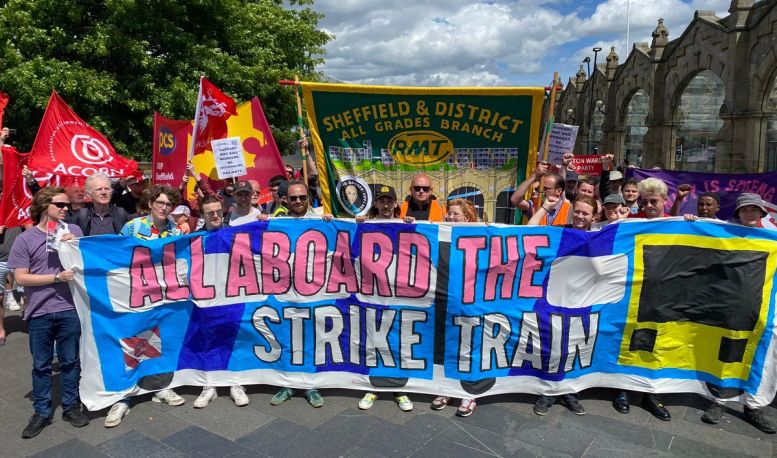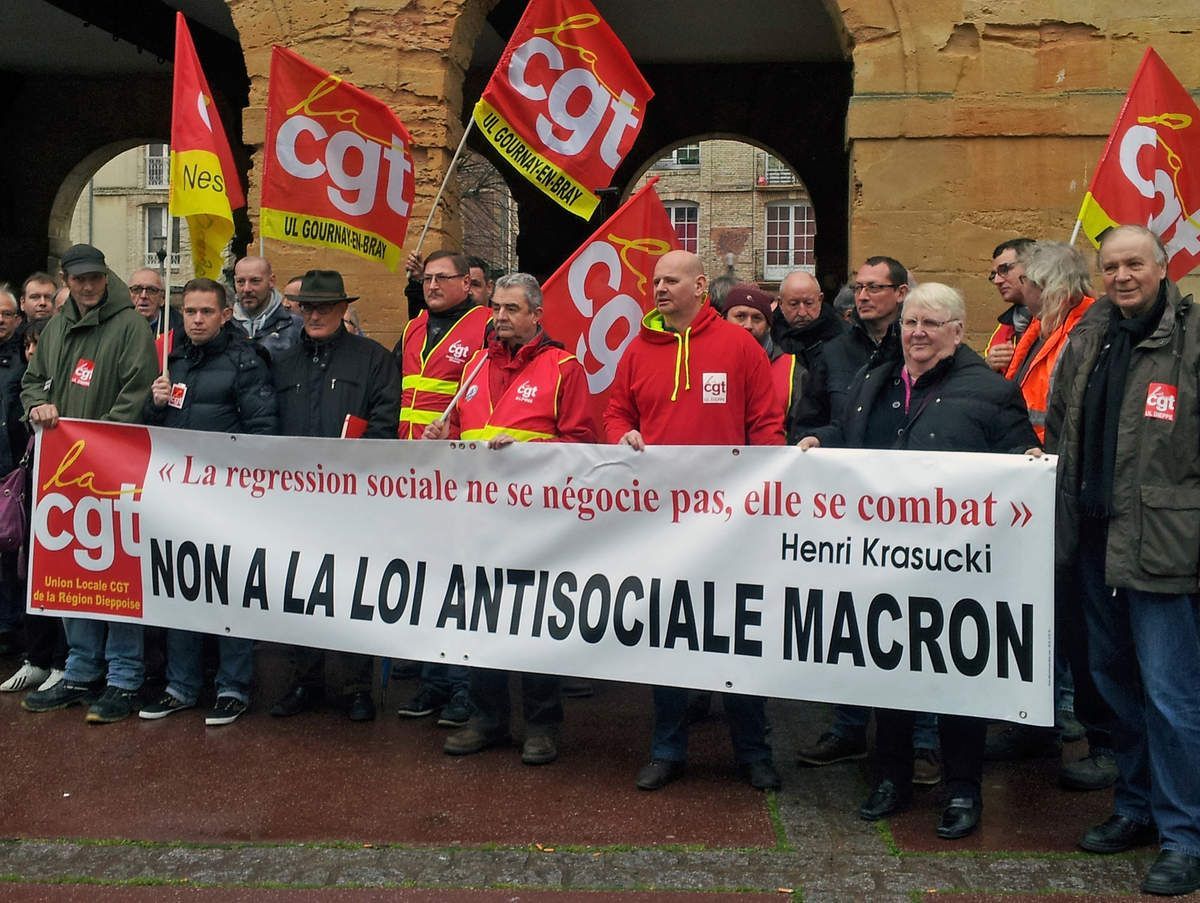Danny Byrne is a member of ISA’s International Executive.
Economic crisis, a rising strike wave, ‘Enough is Enough’ and the need for socialist solutions
During the last global “stagflationary” crisis, in the 1970s, Britain was often referred to as the “sick man of Europe.” An oil crisis, triggered by geopolitical turmoil, plunged the world economy into recession which hit the UK economy especially hard. Soaring inflation led James Callaghan’s Labour government to solicit an historic IMF bailout. The 1978/9 “Winter of Discontent” encapsulated the waves of major industrial struggle which swept through the country throughout that entire period, culminating in the 1984/5 miners’ strike.
Sitting in 2022, this all sounds pretty familiar. In August, Citibank forecast UK inflation to peak at over 18% in early 2023, the highest rate since 1976. Days later Goldman Sachs went even further, projecting a rate of up to 23%! As the world is dragged into a new economic crisis by the bloody inter imperialist war in Ukraine, part of the New Cold War which has thrown globalisation into reverse, Britain again stands out for the severity of its specific national capitalist crisis.
It is forecast to have the highest inflation rate of any “advanced” Western economy, and the deepest and longest recession of any G7 country. A recent IMF analysis found that UK households are set to suffer more than any other Western European nation from the energy crisis, with spending power to be hit roughly twice as severely as in Ireland or Germany, for example.
In the same study, the UK also tops the league for inequality, with the biggest gap between the impact of the crisis on rich and poor households out of all countries covered. The poorest 10% spend almost triple the share of their household budgets on energy compared with the richest 10%, more than double the differential reported in France.
The IMF’s explanation for this highlights the economy’s greater dependence on gas, which heats 85% of homes and powers 40% of total electricity (compared to 6% in Denmark).
This is no natural problem but a result of decades of capitalist mismanagement of the economy. British bosses and governments took a conscious turn towards gas, as the coal industry was wound down and the prospect of many billions of pounds of profits emerged from the North Sea gas fields off Scotland.
In a country described as a potential “Saudi Arabia of renewable energy” due to its geography and climate, this was accompanied by a policy of outright hostility to renewables, with onshore wind power virtually banned by law. Fast forward a few decades and the country is in drought, with hundreds dead following a summer of historic heatwaves, storms and flooding. Climate breakdown is also hitting the economy hard, with several strategic food crops predicted to fail at rates of up to 50% due to extreme heat
And this is not all. Added to the enhanced impact of the energy crisis provoked by the war in Ukraine due to Britain’s special dependence on gas, is the impact of the Tories’ Brexit shambles. This has worsened supply chain chaos and the labour shortage which has seriously disrupted activity in important sectors of the economy, including agriculture, aviation and hospitality.
The state is also sitting on a debt crisis. In August, government borrowing costs rose by more than any month since 1986. This is also due to blundering billionaires’ mistakes. Former chancellor (Finance Minister) Rishi Sunak recently explained that a huge proportion of UK debt, around double the rate of any other G7 country, was index-linked, which means that interest payments rise in line with inflation. He warned of a serious risk of markets “losing confidence” in the British economy and a record balance of payments crisis.
It is the shameful legacy of parasitic and decadent British capitalism and imperialism which is coming back to bite it, and millions of working-class victims are being asked to pay the price.
Strike Wave — An Historic Showdown
Now the working class is fighting back. The strike wave which began this summer is now the dominant feature of British political life, with no sign of cooling down.
All capitalist crises pose the question of who will pay, and the answer is determined by class struggle. The current crisis represents a crossroads which will result in one of two general outcomes over the coming years. Either a dramatic pauperisation of millions of working-class people, as inflation demolishes real pay and living standards as well as public spending on essential services, or a decisive shifting of the social balance of forces in favour of the working class — won through an historic movement, which forces the rich to pay and opens up the prospect of revolutionary change.
The ruling class is aware of this. Their objective is to inflict an early, and decisive, defeat on the labour movement, to clear the way for a social and economic bloodbath in the 2020s. Far from save the economy, this “strategy” will dramatically worsen Britain’s chronic productivity crisis which is one of the worst in the major industrialised countries. Britain’s bosses have failed over the last decade to invest in new techniques, plant, machinery and in particular labour. By directly attacking wages, just at a time when Britain is going into recession, the Truss government would see the UK fall even further behind its trading rivals as it continues to try to rely on cheap labour to compete on world markets.
Important sections of the union leadership appear to have grasped the necessity of fighting back, reflecting the mood of the ranks for action, at least partially leaving behind the failed methods of maintaining social peace given the now unacceptable price. However, it remains to be seen how much these leaders really understand the significance of the fight which has been unleashed.
The working class, socialists and trade unionists, cannot afford to wait and see. Winning this battle will require the mass of workers themselves, the rank and file of a growing trade union movement, to organisee, mobilise, and develop a plan of struggle to win real change.
The Whip of Counterrevolution
The strike wave is intertwined with the other major political process of the past weeks — the Tory party leadership contest leading to Liz Truss’ selection to replace Boris Johnson as Prime Minister. The leadership contest consisted of a race towards the right on the part of all candidates. This campaign, and Truss’s eventual victory as the standard bearer of the Tory right, have consolidated the elements of “Trumpification” of the Tory party, dominant since the Brexit referendum in 2016 and Johnson’s coming to power.
In the final stages of their leadership campaign, Truss and Sunak fought it out to win the support of just over 170,000 of the most backward, right-wing, nationalistic and generally hateful people that could be found in the country (the Tory membership). This is a group totally divorced from reality.
According to a Financial Times report of a Q&A session at a hustings event in a Hertfordshire Tory heartland, not a single question mentioned the cost of living crisis. The loudest applause, we are told, came when Sunak railed against “leftie woke culture that wants to cancel our values, our culture and our women.”
In the mix of nationalism, transphobia and general Thatcherite nostalgia, a special place was reserved for vicious anti-union rhetoric. Not only were all candidates committed to forcing workers to accept increases far below inflation — in effect massive pay cuts — they were also baying for blood, and for new measures to cripple workers’ bargaining power in a country already plagued by the worst anti-union laws in Europe.
Proposals and promises floated included banning all strikes in “essential services”, imposing “minimum service” requirements during strike days, and banning the coordination of disputes.
Beneath the raving madness of these puffed up Trumpites lies a realisation among the ruling class that the working class must be taken on.
As RMT leaders have explained, it is no exaggeration to state that the current strike movement of railway workers — which has seen the biggest rail strikes for over three decades — was deliberately provoked and orchestrated by the Tory government, which bankrolls the transport companies. They provoked the strike in order to unleash a wave of vitriol, to defeat the workers, and weaken the RMT union which has been a thorn in their side for many years, to establish an early “winning” dynamic for their class in the struggles over pay and conditions developing across the economy.
It was this offensive against the rail unions that served as the “whip of counter revolution,” which converted the rail strike into the most popular industrial dispute for a generation. Mick Lynch, the General Secretary of the RMT, has been catapulted into stardom by his media confrontations with the bosses’ lackey journalists on TV screens across the country in the early days of the strike.
Since then, these strikes, and the idea of striking in general, have gripped the imagination of workers and young people throughout the country. The latest polls coming after multiple days of severe transport disruption put sympathy with the strikes at 64%, compared with 20% for the government. Overall support for the unions — long dismissed as in terminal decline by triumphalist capitalist commentators — is at its highest level since 1965!
This is Only Beginning
This strike wave is very significant. Multiple rounds of rail strikes have broadened out to include all unions on national rail and most regional lines. Bus workers too have played an increasing role. In London on July 21, during a week of action, coordinated strikes saw national, underground and overground rail services shut, as well as bus services in the West and North of the city, in what amounted to a near transport general strike in the capital.
In August, transport workers were joined in the vanguard by over 170,000 members of the CWU union, representing staff at privatised postal and telecom companies. Their plan of eight days of strike action is the biggest private sector strike for decades.
In Scotland, a strike by council bin workers saw rubbish pile up in city centre streets during Edinburgh’s prestigious festival season. Workers at the UK’s biggest container port in Felixstowe, who handle half of all containers imported into the UK are taking eight days of strike action, and are soon to be joined by their counterparts in Liverpool port. These are just some of the many strikes, both official and unofficial.
Also of particular importance has been the emergence of workplace organisation and struggle at Amazon warehouses, where at least four locations saw spontaneous stoppages against a miserable pay offer.
But all of this is just the beginning. With the government holding wage offers down to insulting levels (averaging below 5%) across the public sector, literally millions of workers are being balloted for strike action, including teachers and educators in schools and universities, workers throughout the NHS, and local government.
Heading for a General Strike?
Leaders of the unions, both from the right and left of the movement, have taken a tone more militant than has been heard in a generation. The crisis is such that all union leaders are under ferocious pressure to move. However, workers cannot afford to be complacent. Despite mass anger, historic campaigns mobilising members and organising in every workplace with gate meetings and days of action will be required to ensure we smash through the anti-democratic ballot thresholds required under anti-union laws. Such a drive can quickly reverse the weakening of the labour movement that has taken place in the last few decades. This is the only way to ensure that union leaderships then call the kind of decisive, coordinated and escalating strike action which will be necessary to win.
If these campaigns are successful, Britain is headed towards strike action on a level not seen since the massive public sector general strike in 2011, and potentially since the 1970s. In this scenario, workers are inevitably posing the question: why not all strike together?
When on August 23, the TUC (Trade Union Congress) created great suspense with a “big announcement coming” only to disappoint by announcing a meek minimum wage campaign, #GeneralStrike trended across social media as thousands of workers and young people demanded real action. Socialist Alternative campaigns boldly for a 24 hour general strike, which despite the obstacles standing in the way, is quite simply what is necessary: the full power of the working class must be mobilised in this life or death struggle.
While anti-union laws forbid strike action unless related to a direct dispute with an employer, de facto generalised strike action can legally be built by a well organised labour movement, coordinating disputes around the many problems facing all working people, and calling strikes around an agreed plan and dates.
This call has also come from those in the leadership of key parts of the movement, including the leaders of both the CWU and the RMT. As the TUC meets for its annual conference, pressure to act is building. Already, two key motions have been submitted by the UK’s two biggest unions to the conference which if passed, will mark an important turning point.
The first, proposed by Unite, calls on the TUC to coordinate strike action, saying “facilitate and encourage industrial coordination between unions so workers in dispute can most effectively harness their union power to win.” The second, from Unison, also calls on the TUC to coordinate action, adding the crucial proviso that to fight the “low pay crisis” unions campaign for pay rises “at least in line with inflation.”
If passed and actually acted on, these motions would be a significant positive starting point for the building of the movement we need.
But as always, this is a big “if”. While national union leaders are currently talking tough, a look at the track record of most of them tells us that we need to be vigilant. Workers will have to organise to hold them to their words, and push them further to act according to what is needed. Already in Scotland, the same union (Unison) which is proposing that the TUC fight for pay to rise with inflation, is recommending that low paid council workers accept a pay offer closer to 5%, amounting to a major pay cut in real terms.
Moreover, the current TUC leadership has no intention of helping to develop coordinated generalised strike action, let alone an actual general strike. Forcing the conservative TUC leadership to act will require the movement’s rank and file, together with those union leaders who are prepared to fight bringing massive pressure to bear and failing that, being prepared to go forward without them..
A movement of grassroots mobilisation on a scale not seen since the historic anti-poll tax movement (led by SA’s predecessor, the Militant tendency) is what is needed. Whereas back then, it was a 14-million strong non payment campaign that played the decisive role in defeating the tax and the Thatcher government with it, this time around (together with other forms of auxiliary actions which may include non payment campaigns of course) it will be the labour movement’s most effective weapon — the strike — which can force concessions from our class enemy and ultimately shift the balance of power in our favour.
Enough is Enough — An Historic New Mass Movement?
The potential that exists for such a movement has been reflected in the explosion of a new initiative, Enough is Enough, which surpassed half a million signed-up supporters last week. Thousands, including many SA members, have already flocked to launch rallies in London, Manchester, Merseyside and elsewhere and a national day of action has been organised for 1 October.
Launched by leading figures in the RMT and CWU unions, EiE aims to channel the explosion in support for strike action and mobilise it to maximise pressure on the government and bosses. These aims are 100% in line with what is necessary and Socialist Alternative has energetically thrown its weight behind this campaign, helping to build and organise local actions and groups, especially in the runup to a crucial national day of action on 1 October.
While the mass response to EiE has spoken for itself, many sections of the labour movement leadership and British Left have given it a more lukewarm reception. This is a serious mistake. While EiE is still in its early stages, it has clearly “tapped a nerve” in society and emerged as a powerful expression of massive and positive changes in mass consciousness among the working class and youth. All union leaders and Left organizations should get behind it and fight to build it as a new mass movement.
Some of EiE’s detractors on the Left highlight a perceived proximity to elements of the Labour Party’s feeble left wing as a reason not to back it. Others cite its emergence as an initiative from the leaderships of a particular section of the union movement, with a mixed industrial and political track record which has sometimes been found wanting. While these qualms all have grains of truth to them, neither of them have prevented EiE from exploding into a potentially historic mass movement and neither should stop socialists from fully and positively engaging.
While backing EiE actively, SA argues unapologetically for the strategy and programme necessary for it to fulfill its potential. This means following up on its successful launch with a drive to get the campaign organised in every city, town, union and campus across England, Scotland, Wales and Northern Ireland. Local groups should be open to all workers and youth who agree with the aims and programme of the campaign, and should democratically discuss a plan to build the movement, including the election of coordinating/steering committees on a local, regional, national and UK-wide level.
Such a movement could make a material difference to the brewing strike wave. It could coordinate and mobilise to ensure strike ballots are successful, organise solidarity for strikes underway from across the movement, organise local and national protests and build real coordination of disputes, with the objective of preparing the ground for a general strike, building pressure on recalcitrant union leaders and the TUC to act. It could also bring together the strike movement with climate justice, feminist, anti-racist and community campaigns, united around a strategy for real change.
A Political Struggle Requires a Socialist Programme
EiE is not only a campaign for action but also a political one, fighting for a programme of demands to protect working class people from the devastating crisis which is beginning. EiE’s five demands are all necessary and popular. But really implementing them would require going further and implementing a socialist programme (some important aspects of which are outlined below).
The super rich will mount ferocious resistance to any real attempt to make them pay for the economic crisis they have created, and to hold on to their economic and political power as the ruling force in capitalist society. Our movement must be prepared to fundamentally break their power by removing it at source — ending the private ownership and control of the key levers of the economy and placing key industries under public ownership and democratic control, in the service of an economic plan to protect people and the planet.
While EiE’s current demands include public ownership of the energy companies, this should be extended to transport and mail, as well as to the banks and the big monopolies which dominate our economy.
EiE’s programme also inevitably poses the question of who will implement it? A partial answer is: not Keir Starmer, that’s for sure. Starmer’s New Blairite “Labour” leadership cannot even bring itself to support a single strike. Starmer has even sacked Labour MPs from his shadow cabinet for the crime of visiting picket lines. This is part of cementing his capitalist counter revolution in the party and crushing of the Left following the expulsion of Jeremy Corbyn.
Ultimately, workers need a political force that consistently fights for their interests as well as unions and campaign groups. The construction of a new mass working class party of the Left, based on our movements and struggles, is an important strategic task for workers and youth today. Such a party would be far from a mere electoral machine, but rooted in struggle and under democratic control by a mass working-class membership. If EiE can develop to its full potential, it could become an important step towards this.
The failure of Corbynism has been digested by tens of thousands of workers and young people, and the answer lies not in resignation but in determination to learn the lessons of past mistakes and press on. The main lesson of Corbynism is the need for bold socialist leadership and independence of the working class from politicians representing our class enemy. Socialist Alternative is building a vibrant revolutionary socialist organisation across England, Scotland, Wales and beyond, convinced of the need for organised and determined Marxists to play a key role in the stormy period ahead. If you agree then join us!
We Say
- Escalate and coordinate the strikes! Fight to win every ballot and build for a 24 hour General Strike!
- Build Enough is Enough as a mass, unified, democratic and socialist mass movement! All out for 1 October! Build local groups with democratic structures at all levels
- Make the rich pay for the energy crisis! Cap bills at socially affordable levels and tax the super rich to pay for it! Nationalise the energy companies and invest in an accelerated green energy transition
- For a sliding scale of wages! Permanently link all wages to the rate of inflation by law, alongside pay rises to compensate for real pay lost over the last decade of austerity
- For a £15 an hour minimum wage NOW (not in 2030), to rise with inflation at least annually! Raise Universal Credit, pensions and all other benefits to the level of a living wage
- Build millions of council houses to solve the housing crisis and bring privatised social housing back into the public sector! For strict rent caps to be determined by trade union and renters’ organisations and a ban on all evictions
- To end economic robbery we need revolutionary socialist change! Nationalise transport, mail, energy, all utilities, the banks and major monopolies under democratic workers’ control, with compensation only for proven need. Build a socialist economic plan to end poverty, climate destruction and all forms of oppression
- Build a new democratic working class party of the Left, based on the struggles of the working class, youth and oppressed




